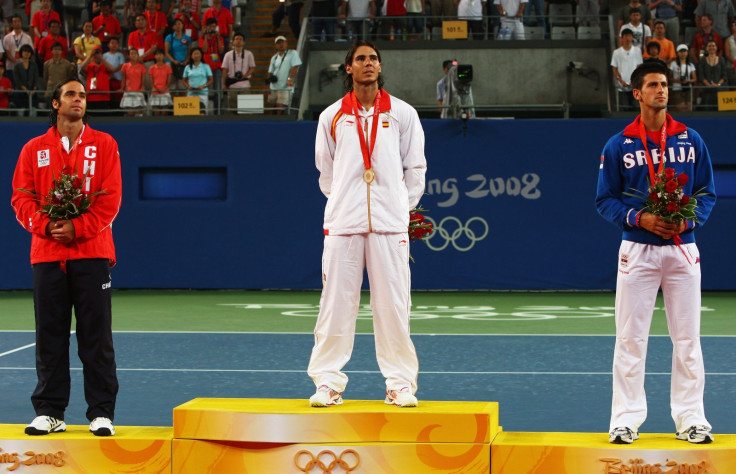Novak Djokovic needs elusive Olympic gold at Rio 2016 after conquering everything else
KEY POINTS
- The Serbian won a bronze medal in Beijing 2008 but has got no closer to gold since.
- World no.1 suffered shock exit at Wimbledon to Sam Querrey.
While golf has seen its major attractions walk away from the opportunity to win Olympic gold, the tennis world has, for the most part, avoided a major exodus.
While the withdrawals Milos Raonic and Simona Halep due to fears of the Zika virus softened some of the sport's enthusiasm ahead of Rio 2016, the talent pool remains firmly full, with the Big Four of men's singles – Novak Djokovic, Andy Murray, Roger Federer and Rafa Nadal – all looking to add to their respective medal collections.
Djokovic has dominated his sport like no one else over the last 18 months, shattering records and adding countless personal accolades to his endless haul.
Despite disappointment at Wimbledon in June, his campaign in SW19 still saw him record an Open-era record 30<sup>th consecutive grand slam win after dismissing Adrian Mannarino in the third round.
At the French Open before that, he became the first player in 24 years to win the first two majors of the year after steaming through Murray, a feat that also saw him become only the third player in history to hold all four titles at once, having dominated the US Open and Wimbledon in 2015 and the Australian Open in January.

Until that untimely slip against the big serving Sam Querrey in south west London, there appeared to be nothing to stop his relentless pursuit of further supremacy.
But that is something the Serbian hasn't been able to replicate in Olympic competition. A year on from reaching his first major final, a youthful Djokovic clinched a bronze medal in Beijing 2008, falling to Nadal who was at the time operating at the very peak of his powers.
Four years later, he returned as his country's proud flag bearer, having already won five of his 12 major crowns to date. A straight sets defeat to Murray in the semi-finals and a bronze medal play-off defeat to Juan Martin Del Potro meant he went home empty handed, however.

An Olympic gold medal is not an opportunity that comes around often. If Djokvoic loses the French Open final, he only has to wait a year to reclaim it, as he did in May after Stan Wawrinka's shock win in 2015. It's the single item missing from his trophy case.
While he has shared the fears many of us have harboured over the Zika virus, Djokovic's preparations since deciding to travel to Brazil are a measure of his intention to win. After disappointment at Wimbledon, the Serb opted out of Davis Cup action – which would have ironically pitted him against the man who took his SW19 crown in Murray – to focus on the task at hand in Rio.
Travelling out early to acclimatise and prepare for what are certain to be energy absorbing conditions are a further testament to his commitment to Olympic success.
Djokovic is already the most dangerous competitor in his sport. The incentive of a triumph he is yet to taste in an otherwise perfect career and to also banish the memories of Wimbledon is a worrying combination for anyone trying to stand in his way in Rio.
© Copyright IBTimes 2024. All rights reserved.







